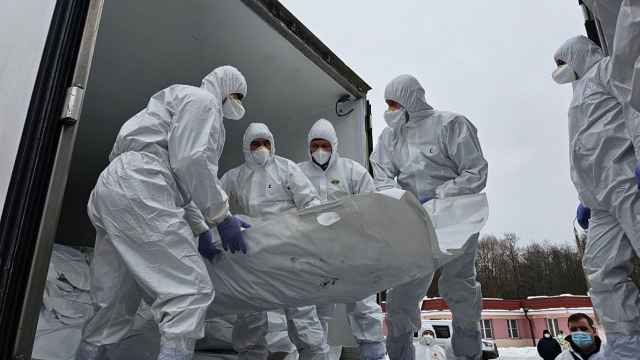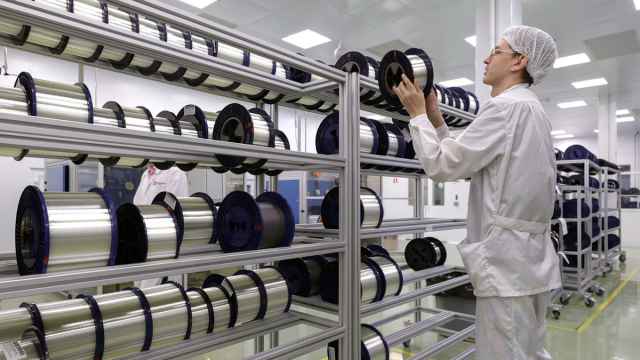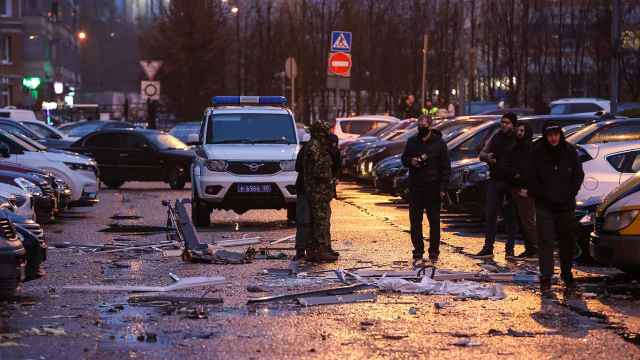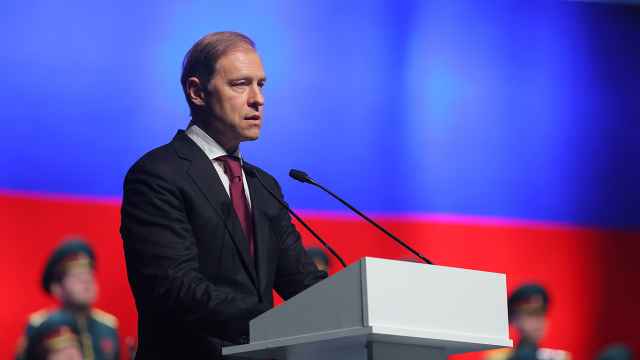Individual entrepreneurs starting businesses from scratch are soon likely to be exempted from paying taxes for two years, after Prime Minister Dmitry Medvedev ordered the government Thursday to present proposals on providing businessmen with tax holidays.
The Economic Development Ministry, the Finance Ministry and the Labor Ministry must review ways to implement such a measure by August 5, according to a decree published on the government website. This work should be carried out jointly with business lobby group Delovaya Rossia.
Entrepreneurs who have registered their first startups should be exempted from all taxes for a two-year period, the document said.
Delovaya Rossia is working on its proposals at the moment, the lobby group's co-chairman Alexander Galushka said. The tax holiday initiative might go into effect starting as early as next year, he said.
"It's a reasonable measure. It usually takes an entrepreneur two years to understand whether a business venture works. It's a formative period," he added.
Meanwhile some were skeptical about the move. Introducing tax holidays is unlikely to bear fruit amid the existing tax regime for small businessmen, said Pavel Grudinin, deputy chairman of the agriculture development committee at the Chamber of Commerce and Industry. Grudinin is also the director of the State Farm Named in Honor of Lenin.
Setting an initial zero-percent tax is unlikely to encourage entrepreneurs if they know that heavy duties will be levied on them in two years, he said.
The government moved forward the initiative to support budding entrepreneurs after last year's increase of payroll taxes hit small businessmen hard.
The annual size of payroll taxes for small entrepreneurs doubled this year to reach almost 36,000 rubles, following the government's decision made last year. The tax burden turned out to be too heavy for many entrepreneurs, resulting in nearly half a million of them across the country closing their businesses, Galushka said.
A total of 411,807 small entrepreneurs, or 10 percent of the country's individual entrepreneurs, de-registered in December through February in the wake of the tax increase, Rossiiskaya Gazeta reported in April, citing Pension Fund figures.
The tax breaks planned by the government are, apparently, an effort to lure businessmen back to the market and stimulate entrepreneurial initiative, Galushka said. "It is important to send a message to those who are considering starting their own business," he added.
He also pointed out that the move was likely to ensure specific economic benefits in the middle and long term. The beginning individual entrepreneurs are prospective taxpayers, Galushka said.
But the practice shows that the reality is not that rosy, Grudinin said. He recalled that the latest effort of introducing tax holidays a few years ago resulted in entrepreneurs closing their businesses after the tax break period was over and launching a new startup in order to evade taxes.
"It's hard to build a good reputation with such an approach," Grudinin said.
Medvedev on Wednesday pushed for improving the country's tax system and reducing the size of the shadow economy.
"The tax rules must be understandable and able to be followed, for all to be able to pay taxes — big, medium and small businesses," he said at a meeting with the board of the Russian Union of Industrialists and Entrepreneurs.
To encourage individual entrepreneurs, the government would be better off reducing the long-term tax burden and lowering administrative barriers — the measures businesses really need, Grudinin said. "Business likes stability in order to understand what it can count on."
Contact the author at [email protected]
A Message from The Moscow Times:
Dear readers,
We are facing unprecedented challenges. Russia's Prosecutor General's Office has designated The Moscow Times as an "undesirable" organization, criminalizing our work and putting our staff at risk of prosecution. This follows our earlier unjust labeling as a "foreign agent."
These actions are direct attempts to silence independent journalism in Russia. The authorities claim our work "discredits the decisions of the Russian leadership." We see things differently: we strive to provide accurate, unbiased reporting on Russia.
We, the journalists of The Moscow Times, refuse to be silenced. But to continue our work, we need your help.
Your support, no matter how small, makes a world of difference. If you can, please support us monthly starting from just $2. It's quick to set up, and every contribution makes a significant impact.
By supporting The Moscow Times, you're defending open, independent journalism in the face of repression. Thank you for standing with us.
Remind me later.





